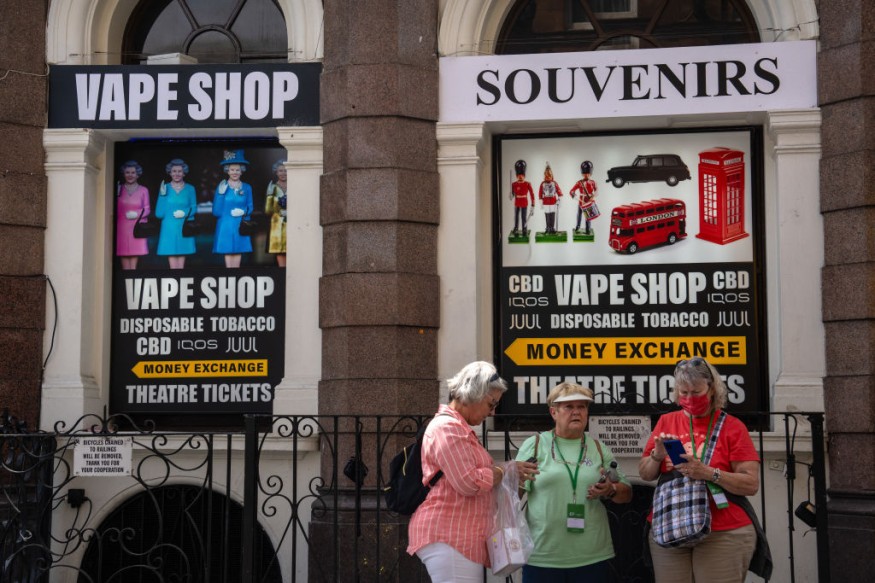An environmental group called disposable vapes a "clear environmental menace" as the United Kingdom moves to ban its use among youth.
Under newly stated powers, the British government plans to make vaping less enticing to children by prohibiting sweet and fruity flavors, introducing plain packaging, and making displays less visible in stores. It also intends to stick to its contentious proposal to prohibit today's youth from ever purchasing cigarettes.
Ban of Using Vape

The adjustments are scheduled to take effect by the end of this year or early 2025.
It is now illegal to sell vapes or tobacco to minors under the age of 18 in the United Kingdom, but officials claim teenage vaping has increased in the last three years, with cheap, colorful disposable vapes in flavors like bubblegum and candy floss serving as a "key driver."
"As any parent or teacher knows, one of the most worrying trends at the moment is the rise in vaping among children, and so we must act before it becomes endemic," said UK Prime Minister Rishi Sunak.
The administration hopes to introduce legislation banning disposable vapes as soon as possible by utilizing current environmental protection rules. The restriction will also be implemented in Scotland, Wales, and Northern Ireland under devolved law.
E-cigarettes, often known as vapes, function by heating a solution containing water, flavoring, and nicotine to produce a vapor that the user inhales.
Disposable vape pens are pre-filled with approximately 600 "puffs" of e-liquid and nicotine and cannot be refilled.
Rising Environmental Threats
According to the non-profit Material Focus, Brits toss away 1.3 million disposable vapes each week.
Anna Diski, a plastics campaigner at Greenpeace UK, described vapes as a "clear environmental menace" because they are "nearly impossible to recycle."
It is difficult to separate the lithium battery from the plastic and other components that comprise a vaporizer.
A 2022 study published in the peer-reviewed Lancet journal cautioned about vapes' "rising environmental threat."
According to the study, disposable e-cigarettes, like cigarette butts, are "thrown away carelessly" rather than disposed of in dedicated facilities, as cellphones are.
As they decompose, they release plastic, "toxic compounds," and nicotine into the environment.
While trash is a problem, experts warn that vapes should not be thrown out because they can spark fires.
The Local Government Association (LGA), which supports the ban, claims that single-use vapes are "a hazard for waste and litter collection and cause fires in bin lorries." The Lancet research also cautioned about the fire risk.
According to the LGA, the lithium batteries inside the plastic "can sharply increase in temperature and become flammable" if crushed.
Vapes are made from plastic and essential minerals, which are in high demand for green solutions to combat climate change. Each single-use vaporizer includes an average of 0.15 g of lithium.
According to Material Focus, with over a million discarded each week, this amounts to 10 tons of lithium every year, which is equivalent to the lithium in the batteries of 1,200 electric vehicles.
The International Energy Agency predicts that demand for lithium will increase 40 times over the next two decades compared to 2020. The price of lithium carbonate is growing, with a 150% increase expected in 2021 alone.
Related Article : Disposable Vape Problem: Non-Recyclable and Hazardous Waste Reaches 12 Million Per Month
© 2025 NatureWorldNews.com All rights reserved. Do not reproduce without permission.





